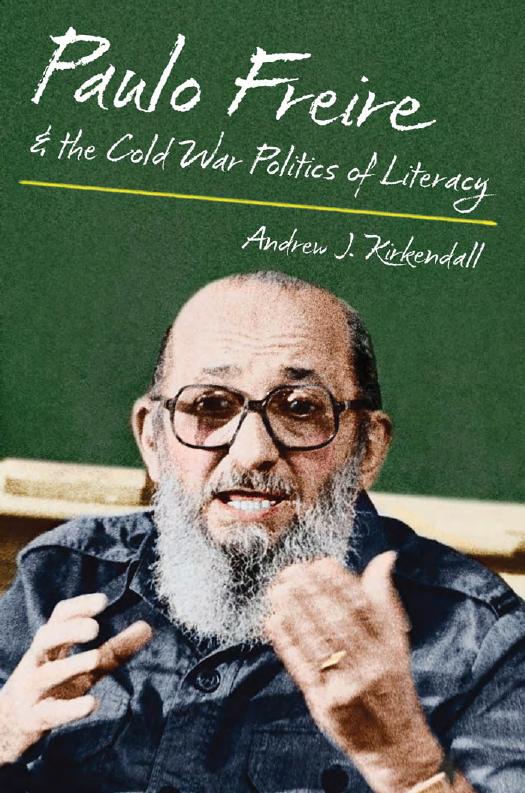Paulo Freire and the Cold War Politics of Literacy by Andrew J. Kirkendall

Author:Andrew J. Kirkendall [Kirkendall, Andrew J.]
Language: eng
Format: epub, pdf
Tags: History, Latin America, South America, Biography & Autobiography, Political, Educators, Education, Language Arts & Disciplines, Literacy
ISBN: 9780807834190
Google: JgGhHKrsaY8C
Publisher: Univ of North Carolina Press
Published: 2010-01-15T03:23:05+00:00
Six / The Long, Slow Transition to Democracy in Brazil & the End(?) of Utopia, 1980â1997
Paulo Freire returned to a Brazil that was still run by the military but experiencing âa concrete opening.â Freire felt that he had to âtake advantage of the existence of this space.â The amnesty law of 1979 had made it possible for him and his family to make a life once again in his native land. After his return, he found it necessary, as he frequently noted, to ârelearn Brazilâ while responding to abundant invitations to speak throughout the country.1 Brazil had undergone significant social and economic change since his departure in 1964, but these changes were not yet reflected in the political system. Brazil's transition to democracy would take most of the following decade, and Freire would play a role in the democratization process, first through his involvement with a new political party the likes of which Brazil had never seen before, the Partidos dos Trabalhadores (Workers' Party, PT), and then though his employment as the secretary of education in a PT municipal government in São Paulo. In the last decade of his life, the end of the Cold War also changed the international context in which Freire thought and worked.
The Brazil that Freire returned to was new in more ways than one. Economic growth and social change had continued to be uneven under the military, but in the late 1960s and early 1970s, growth rates in the gross domestic product had reached double-digit levels, constituting what became known as the Brazilian miracle. Industrialization and urbanization continued to accelerate as a result of government policies that encouraged foreign investment but also maintained a strong role for the state in the economy. The military model of economic growth exacerbated historical patterns of vast inequalities of income distribution. The years of the âmiracleâ were also the years in which torture was employed most heavily as a means of keeping political opposition in check.2
Download
Paulo Freire and the Cold War Politics of Literacy by Andrew J. Kirkendall.pdf
This site does not store any files on its server. We only index and link to content provided by other sites. Please contact the content providers to delete copyright contents if any and email us, we'll remove relevant links or contents immediately.
Harry Potter and the Goblet Of Fire by J.K. Rowling(3023)
Unfinished: A Memoir by Priyanka Chopra Jonas(2911)
Never by Ken Follett(2871)
The Man Who Died Twice by Richard Osman(2289)
Machine Learning at Scale with H2O by Gregory Keys | David Whiting(2263)
Fairy Tale by Stephen King(2058)
Will by Will Smith(2032)
Rationality by Steven Pinker(1760)
The Storyteller by Dave Grohl(1656)
The Dawn of Everything: A New History of Humanity by David Graeber & David Wengrow(1564)
The Dark Hours by Michael Connelly(1562)
The Stranger in the Lifeboat by Mitch Albom(1527)
Cloud Cuckoo Land by Anthony Doerr(1428)
The Becoming by Nora Roberts(1323)
Friends, Lovers, and the Big Terrible Thing by Matthew Perry(1321)
Crying in H Mart by Michelle Zauner(1312)
Einstein: His Life and Universe by Walter Isaacson(1311)
New Morning Mercies: A Daily Gospel Devotional by Paul David Tripp(1299)
A Short History of War by Jeremy Black(1295)
